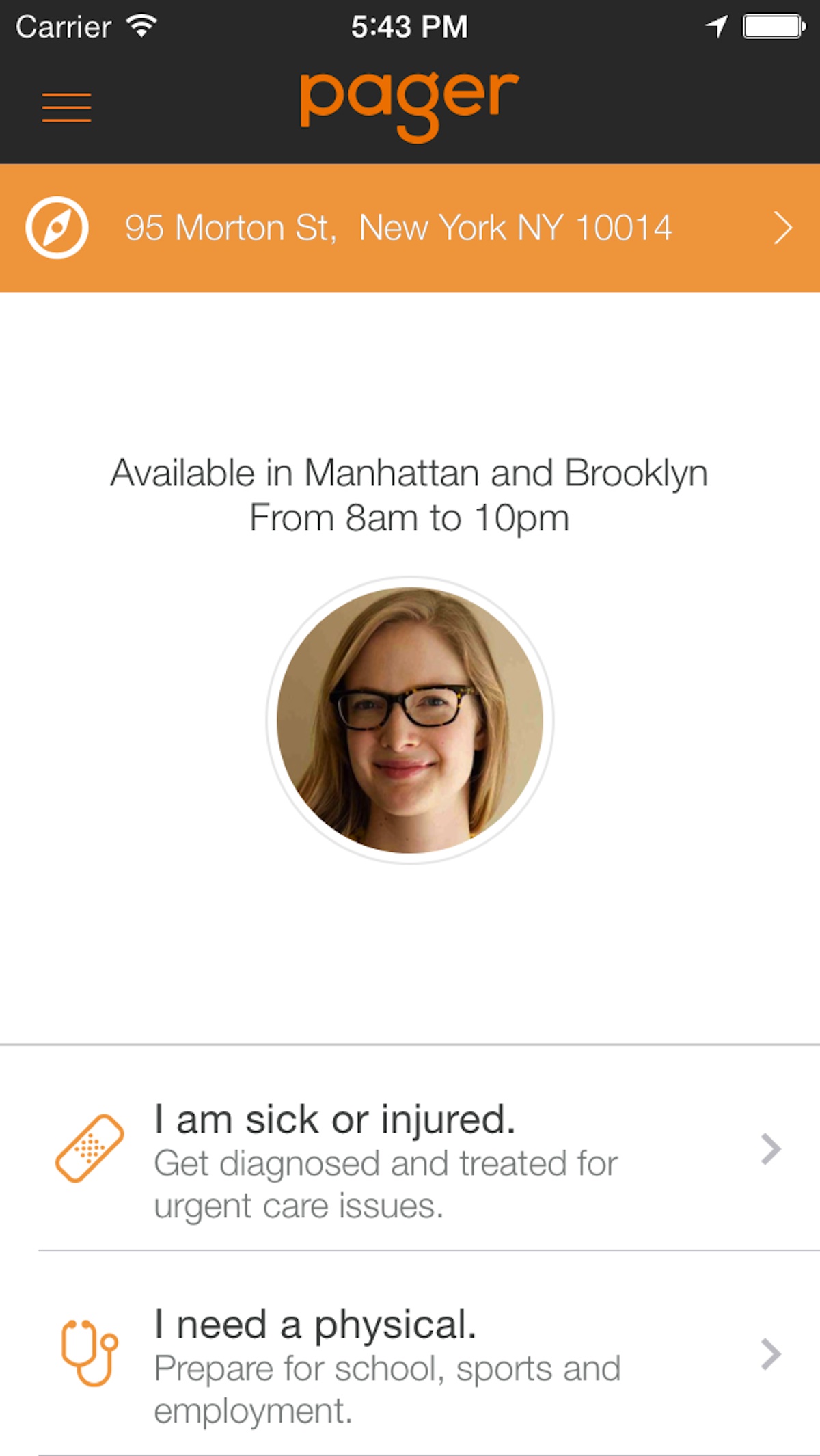Pager Brings Doctor’s House Calls Into the 21st Century
As anyone who’s ever done it can attest, waiting for a doctor at the ER is one of the most miserable experiences on the planet. A new app called Pager feels your pain — and is trying to treat it, too.
Billed as the “Uber for doctors” and cofounded by Uber’s original chief technology officer Oscar Salazar, Pager allows patients with non-life threatening ailments to set up a doctor’s house call from the comfort of his or her phone. “We are looking to use technology to bring back the doctor house call,” says Pager’s head of marketing Toby Hervey. “House calls are a great way of getting care: It’s highly personal, it’s very convenient, it comes to you.”
After launching in May of this year, Pager’s services are currently available only in New York, but Hervey says Boston is on the “short list” of cities the company is eyeing for an early 2015 expansion, along with Chicago, San Francisco, Los Angeles, and Miami.
“Boston’s super interesting because it has one of the highest doctors per capita ratios in the country, but so many of the doctors are specialists and the average wait time for a primary care appointment in Boston is the highest of any major metropolitan area in the United States,” Hervey explains, noting that those high wait times heighten the need for services like Pager. “There’s a real issue with access to urgent and primary care in Boston.”
Pager seems simple to use. First, users enter their symptoms. Then, a list of available doctors pops up. Once a doctor is selected, he/she makes a triage call to assess the patient’s condition and to make sure they aren’t in need of emergency care. If all goes well, the doctor is guaranteed to arrive within two hours—medications in hand. Appointments, which cover urgent care, physicals, and, within the next two weeks, STD testing and flu shots between the hours of 8 a.m. and 10 p.m., are billed out-of-pocket at a flat rate of $199 for weekdays at $299 for evenings and weekends. Hervey says the company is also working on making the service available through insurance plans.
Pager has found footing not only with tech-obsessed young professionals, Hervey explains, but also with busy parents and travelers far from their typical doctor. And, he says, it’s a valuable tool for both urgent and preventative care. “It’s not only so when something goes wrong I have access to great doctors at my fingertips instantly, but I also get all of the things that I should be doing but don’t really do because it’s inconvenient, like my annual physical or my annual flu shot,” he says.
In the end, Hervey says Pager, like Uber before it, is simply capitalizing on the immense possibilities of the technology generation. “Big picture, there’s no question that the whole healthcare system is broken in a lot of ways,” he says. “[People] use technology for all sorts of different services in their life; why should healthcare be any different?”



